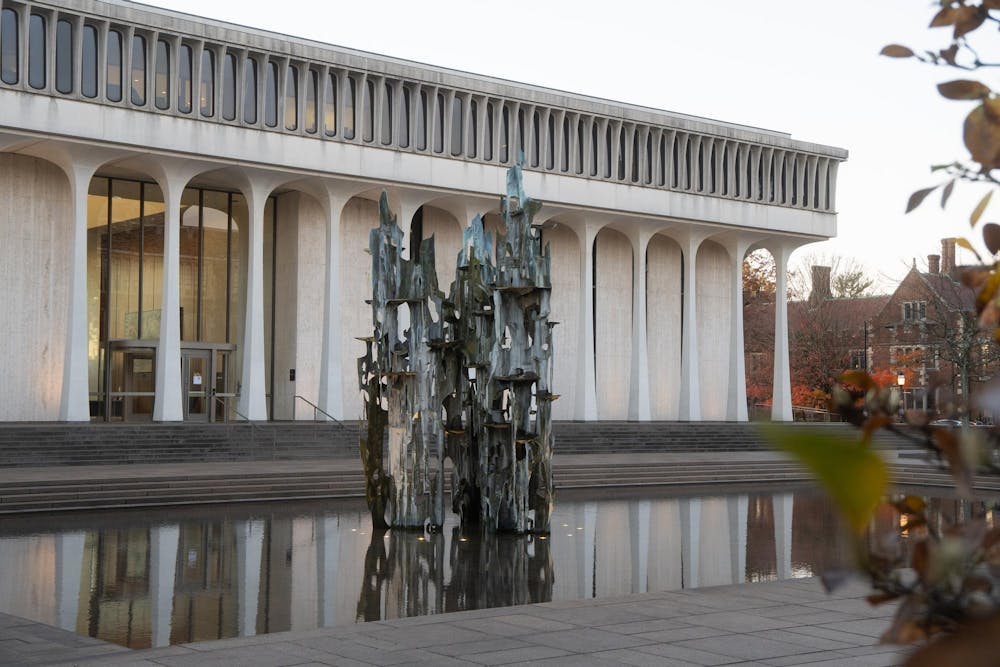Since Feb. 3, thousands of federal web pages containing health guidelines, census reports, and climate data were taken offline. This includes over 8,000 sites, including 3,000 from the Center for Disease Control (CDC), some of which have reappeared in the following days without clear explanations of any changes but accompanied by disclaimers stating that further updates could occur.
The removal of federal datasets has raised concerns within the University’s research community, particularly among scholars in the Office of Population Research (OPR), the Department of Economics, and the Department of Sociology. Students and faculty are now expressing alarm over how these changes may disrupt their research, with some rushing to save datasets they fear may become inaccessible in the future or turning to repositories of federal data maintained by colleagues and other institutions.
Professor of Economics and Public Affairs Owen Zidar shared that a Ph.D. student, whose research about Washington’s unemployment system depended on administrative data, had to abruptly halt their work due to restricted data access.
“His project is going to be abruptly stopped short due to recent developments and data restrictions,” Zidar wrote in a statement to The Daily Princetonian. “Science without measurement is very difficult. Many insights and leading papers would not be possible without access to these types of data,” he added.
For Edward Freeland, Executive Director of the University’s Survey Research Center, the disappearance of federal data sets “initially sent shock waves through the survey research and polling communities.” With over 35 years of experience in survey research and polling, Freeland frequently utilizes census data in his work on government transparency, including data from the Bureau of Labor Statistics and the American Community Survey. Over 3,000 pages from the Census Bureau, which provides access to these data sets, have been removed as of Feb. 3.
The missing pages include not only data sets, but also data stewardship policies, regulatory guidelines on topics like promoting diversity in clinical trials, and toolkits for treating individuals with substance use disorders.
“They are erasing these methodological documents and their code books, which are central and crucial to understand[ing] the data,” Senior Research Specialist Juan Arias Navatta said. “That could really slow down the research process, because it really does make a difference to basically know what button to push.”
“You are really mutilating the capacity of scientists ... to produce knowledge,” Professor of Sociology and OPR Research Associate Patricia Fernández-Kelly told the ‘Prince.’
Some scholars currently remain unaffected, as they had obtained data before the web pages went offline, but they still expressed worry about future research.
“Many people in my circle have been spending a lot of time uploading databases that they expect will disappear,” Fernández-Kelly said.
“There were good avenues for finding the data needed either in repositories, archives, or in some cases, the University of Michigan — [they] serve as a repository for a lot of federal data,” Freeland added. Freeland, who is in close communication with other scholars through professional listservs and email lists, noted that he “recovered pretty quickly, but it was still nerve-wracking.”
“These people and researchers … that we have [at Princeton] are concerned and doing their best to just preserve the data,” Navatta told the ‘Prince.’

“Data preservation and guerrilla archiving [are] terms that have been here for a long time,” Navatta continued. “Luckily, there are some concerned people with projects and with a lot of know-how that are storing this data elsewhere.”
Professor James Raymo, interim director of the OPR, expressed that some researchers at the University narrowly missed being affected by the federal data wipe.
“I think that most of the people here who are working with federal data — the kind of data that might have been affected — they’re not … relying on published tables that might have vanished temporarily, but rather, they’re using data that they’ve already downloaded prior to the past couple of weeks,” Raymo said.
Raymo also expressed that the data wipe may have a long-term impact. “I think it’s … less an issue of how restricting access or eliminating access to federal data affects people in that narrow time window, but more about the longer term implications for our ability as faculty, postdocs, graduate students, undergraduates, to do the kind of research that we want to do, the kind of research that’s going to make a difference,” Raymo told the ‘Prince.’
“[This] can be construed as a temporary inconvenience. I think that the focus needs to be on what this means for the task of knowledge-building,” Fernández-Kelly added.
Many professors view these recent actions as part of a wider effort by the Trump administration to undermine science and restrict access to knowledge.
“The power to not collect data or to remove data — it not only weakens science, but it weakens anyone’s ability to question what the government is doing,” Freeland added. “So it’s not hard to see why the Trump administration has an interest in preventing easy access to data.”
Fernández-Kelly added, “If you control or limit access to data on the part of knowledge producers, and also limit the capacity of regular Americans to understand what’s going on in the world, you have much more latitude to propagate the kind of master ideology that you really want people to believe in order to exercise power.”
Luke Grippo is a staff News writer for the ‘Prince.’ He is from South Jersey and usually covers administrative issues, including USG, the CPUC, and institutional legacy.
Sena Chang is a senior News writer for the ‘Prince.’ She typically covers campus and community activism, the state of higher education, and alumni news.
Please send any corrections to corrections[at]dailyprincetonian.com








